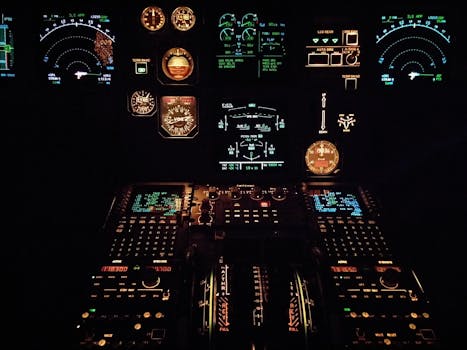The Legacy of William Lear: Aviation and Electronics Pioneer

William Lear, a name synonymous with innovation in aviation and electronics, has left an indelible mark on the world. His pioneering spirit not only revolutionized air travel but also brought significant advancements in the field of electronics. From the creation of the Learjet, which redefined business aviation, to his contributions to modern radio and navigation systems, Lear's legacy is one of relentless ingenuity and vision.
Born in 1902 in Hannibal, Missouri, William Powell Lear grew up during a time when technological advancements were rapidly changing the world. Despite facing numerous challenges and setbacks, his passion for engineering and invention never waned. Over his lifetime, Lear secured more than 150 patents, each contributing to various facets of transportation and communication technology. These inventions were not just technical feats; they were transformative solutions that addressed real-world needs.
Lear's journey from a self-taught engineer to an influential industrialist is both inspiring and instructive. His entrepreneurial ventures spanned multiple industries, showcasing his versatility and foresight. Whether it was improving car radios or designing jet aircraft, Lear's work consistently pushed the boundaries of what was possible. This article delves into the remarkable achievements of William Lear, exploring how his innovations continue to impact our lives today.
The Early Years: From Radios to Aviation
William Lear's early career was marked by his fascination with electronics. In the 1920s, he invented the first practical automobile radio, which laid the foundation for what would become the Motorola Corporation. This breakthrough demonstrated his ability to identify market needs and develop products that catered to them. The success of this venture provided Lear with both the financial resources and confidence to pursue more ambitious projects.
In the 1930s, Lear turned his attention to aviation. He founded Lear Avia Corporation and began developing innovative navigation aids for aircraft. One of his notable inventions during this period was the Lear-O-Scope, an autopilot system that greatly enhanced flight safety and efficiency. This invention was a precursor to many of the advanced avionics systems used in modern aircraft.
The Birth of the Learjet
The 1960s marked a significant milestone in William Lear's career with the creation of the Learjet. Recognizing the need for a small, fast, and efficient business jet, Lear utilized his expertise in electronics and aviation to design an aircraft that could meet these demands. The first Learjet 23 took flight in 1963, setting new standards for performance and luxury in business aviation.
The success of the Learjet was not just due to its technical specifications but also its appeal to high-profile clients. Celebrities, business magnates, and government officials all preferred the convenience and prestige associated with owning a Learjet. This popularity further solidified William Lear's reputation as an innovator who understood both technology and market dynamics.
Contributions to Modern Electronics
While William Lear is best known for his contributions to aviation, his work in electronics also deserves recognition. During World War II, he developed several critical technologies for military use, including advanced radio direction finders and automatic landing systems. These inventions played a crucial role in improving navigation accuracy and safety for both military and civilian aircraft.
Post-war, Lear continued to innovate in the field of electronics. He played a pivotal role in developing early versions of what we now recognize as car stereos and home entertainment systems. His forward-thinking approach ensured that these technologies were not only functional but also accessible to everyday consumers.
Lear's Visionary Approach
What set William Lear apart from many of his contemporaries was his visionary approach to problem-solving. He had an uncanny ability to foresee future trends and needs, often years ahead of their time. This foresight was evident in his work on hybrid cars long before they became mainstream and his interest in alternative energy sources.
Lear's ability to marry technical expertise with a deep understanding of market dynamics made him a unique figure in the world of innovation. His entrepreneurial mindset allowed him to take calculated risks that often paid off handsomely, resulting in groundbreaking products that shaped industries.
The Lasting Impact
William Lear's legacy is evident in many aspects of modern life. The business jets he pioneered continue to be a symbol of efficiency and luxury in air travel. His contributions to electronic communication systems have evolved into technologies we now take for granted but rely on daily.
Lear's story is not just about individual achievements but also about inspiring future generations of inventors and entrepreneurs. His life exemplifies how passion, perseverance, and innovation can lead to transformative changes that benefit society as a whole.
| Invention | Impact | Era |
|---|---|---|
| Automobile Radio | Revolutionized car entertainment systems | 1920s |
| Lear-O-Scope Autopilot System | Enhanced flight safety and efficiency | 1930s |
| Learjet 23 | Set new standards for business aviation | 1960s |
| Advanced Radio Direction Finders | Improved navigation accuracy for military aircraft | 1940s |
| Hybrid Car Concepts | Pioneered alternative energy solutions long before they were mainstream | 1970s |
A Legacy That Continues to Inspire
The legacy of William Lear is one that continues to inspire innovators across various fields. His contributions have left an indelible mark on both aviation and electronics, demonstrating how one individual's vision can lead to monumental advancements that benefit society at large.
Lear's life story serves as a testament to the power of ingenuity and determination. As we continue to explore new frontiers in technology and transportation, the pioneering spirit of William Lear remains a guiding light for future generations of inventors and entrepreneurs.